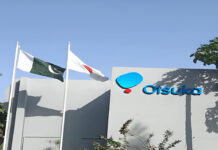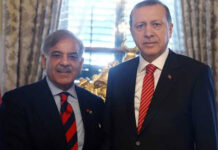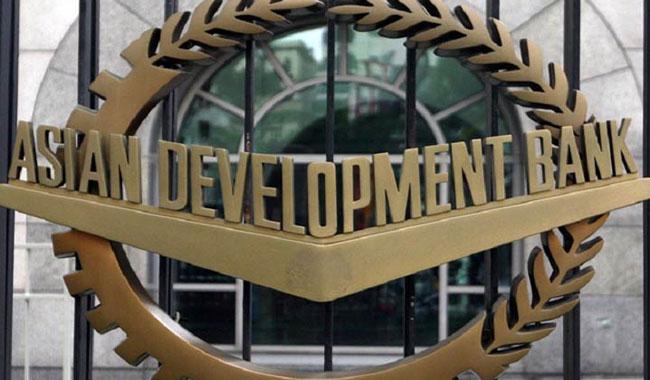Asian Development Bank is working on a comprehensive roadmap for the transformation of Asia and the Pacific into an oasis of inclusive and sustainable growth through underpinning power, transport, telecommunications and water with a focus on infrastructure development, needing $ 1.7 trillion per annum.
The bank will continue streamlining its operations ensuring development solutions are delivered more quickly with efficacy while enhancing finance for this part of the planet, it was stated during the briefings held on the eve of 50th Annual Meeting of ADB Board of Governors in Yokohama, concluded last week.
The event, comprising back to back briefings, seminars and discussions besides business sessions of BOD Annual Meeting from May 4 to 7, was attended by over 4000 delegates including media persons from across the world.
Finance and development ministers, central bank governors, senior government officials, business executives, media persons, academics, representatives from civil society, development organisations and youth from the Asia and Pacific were present on occasion, ensuring effective participation through their brain-storming interactions and perennial contribution to the discussions and discourses from dawn to dusk during four-day long activities.
Amidst pleasant and hospitable ambience, the golden jubilee events were organised at the imposing National Convention Hall and Conference Centre flanked by massive high-rise buildings, portraying fascinating landscape of architecture and state of the art technology.
The annual meeting and side events noted with satisfaction rather jubilation unsung achievements and success stories scripted by the Asian Development Bank during the last 50 years by lending loan, grants and cofinancing for the economic development and social emancipation of member countries.
Identifying major Bank’s future priorities, mainly infrastructure development, President ADB, Takehito Nakao said the region will require $1.7 trillion per year in investments in power, transport, telecommunications, and water through 2030.
In his speech at the Annual Meeting of ADB Board of Governors Takehito Nakao said: “this is more than double our previous estimate, reflecting additional investments, needed to support continued growth and address climate change.”
Listing five chief priorities of the Bank, the ADP President said supporting infrastructure development will remain a priority. In this regard “we will incorporate more advanced technologies. Our developing member countries care about maintenance costs and the resilience of infrastructure,” he added.
The President informed the gathering that the Bank approved $17.5 billion in financing in 2016 from its own resources and attracted $13.9 billion in cofinancing, both new highs.
ADB also disbursed $12.48 billion, another record besides surpassing its target for public-private partnerships, supporting 58 transactions during the 2013-2016 period and outperforming the target of 50.
Scaling new heights, the Asian Development Bank (ADB) cofinancing operations touched dollar 14 billion mark, reflecting the importance of partnerships in meeting Asian and the Pacific’s persistently growing development needs.
The bank leveraged dollar 14.06 billion in cofinancing last year, boosting its annual operations to dollars 31.7 billion-the highest even in ADB’s 50-year history, according to a new Partnering for Development Donor Report 2016.
Addressing the opening session of Annual Meeting, the Crown Prince Naruhito lauded the role of the Bank in working closely with its member countries and across a range of areas with development assistance.
Even with such progress, he noted that much more still needs to be done, specifically in the area of poverty reduction. “There are, however, still over 300 million people living in poverty in this region, and poverty reduction through sustainable and inclusive growth remains an important agenda to us,” he said.
Leading a high-level delegation, Finance Minister Senator Muhammad Ishaq Dar attended the four-day long Annual Meeting of Board of Governors, Asian Development Bank.
With his hands full during a stay in Yokohama, the Finance Minister held one-on-one meetings with deputy Prime Minister of Japan Taro Aso, heads of AIIB, JICA and other bilateral and multilateral donor institutions besides attending an unofficial meeting of Saarc finance ministers on the fringes of Annual Meeting.
He also held meetings with the finance ministers of Germany, Afghanistan and Maldives on the occasion. The Minister also participated in the debate on ‘Trade’ organised by CNBC along with President ADB, Takehito Nakao, Indonesian Finance Minister Sri Mulyani Indrawati and Indian Finance Minister Arun Jaitley.
Stressing upon connectivity during the debate, the minister exuded unequivocal support to the One Belt One Road (OBOR), a giant initiative by China in response to reservations voiced by the Indian finance minister in this regard.
In his capacity as governor at ADB, the finance minister addressed the business session of the Board of Governors at the National Convention Hall and stated, having achieved macroeconomic stability, Pakistan was now focused on realising higher sustainable growth as part of the economic turnaround.
The minister further said the developing world had made remarkable progress in lowering poverty in last two decades. Around 125,000 people were coming out of poverty on daily basis globally and Asia was leading that endeavour of reducing poverty through its phenomenal economic growth, he added.
Pakistan’s Vision 2025, which prioritised investments in human capital and social services, recognised the importance of inclusive and balanced growth and shared prosperity aiming at redressing geographical and social inequality, he added.
Finance Minister Ishaq during his meeting Japanese deputy Prime Minister urged the Japanese corporations to reap the advantage of economic opportunities in Pakistan.
The Japanese firms already working in Pakistan were enjoying the tremendous beneficial run, he added. Apprising Taro Aso of investment potential in Pakistan, Dar also mentioned the recent report of PWC (PricewaterhouseCoopers-one of the world’s largest professional services firms), which said Pakistan would be a member of G20 by 2030.
The Japanese Deputy Prime Minister appreciated the economic performance of the ruling democratic dispensation in Pakistan, saying the country was well poised for Japanese and international investors as an attractive investment destination especially in the textile sector.
Meanwhile, the minister told the media that Pakistan was eyeing on the financial allocation of $ 2.5 billion as infrastructural financing from Asian Development Bank which would help country’s economy to post 7 per cent growth rate by 2019.
During his meeting with ADB President, the minister said the Bank was requested to consider the financial allocation of $ 2.5 billion under infrastructural financing in view of the surging requirements of this sector.
In his address at the second business session of Annual Meeting, Ishaq Dar stated Gross Domestic Product (GDP) growth rate is expected to be above five per cent during the current fiscal year with inflation slashed to single digit around 4 per cent; the lowest in 47 years.
The government, as a result of these efforts, successfully brought down the fiscal deficit from 8.2pc in FY 2013 to 4.6pc in FY 2016 and projected at 4.1pc for FY 2017, he added.
“Our focus, after achieving macroeconomic stability is now on realising sustainable, inclusive and higher growth and country’s target is to reach to GDP growth rate of 7pc by FY 2019,” he added.























